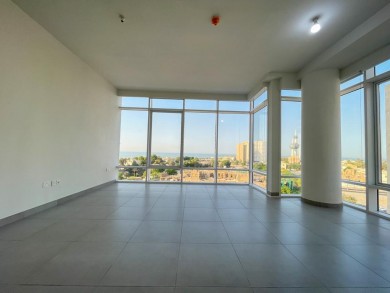Description
Coronaviruses are a large family of respiratory viruses that can cause illness in people and animals. In rare cases, coronaviruses that circulate among animals can evolve and infect humans.
In turn, these infections can easily spread from person-to-person as was the case with Severe Acute Respiratory Syndrome (SARS-CoV) and Middle-East Respiratory Syndrome (MERS-CoV).
An outbreak of the novel (new) coronavirus was first reported in December 2019 when cases of viral pneumonia with unknown origin were confirmed in Wuhan, Hubei Province, China. Because of its similarity to SARS-CoV, the virus has been named: Severe Acute Respiratory Syndrome Coronavirus 2 (SARS-CoV-2). This virus causes the disease referred to as COVID-19 - Coronavirus disease 2019. Similar to other coronaviruses SARS-CoV-2 is suspected to have come from animals, potentially bats.
Risk
The virus is primarily transmitted from person-to-person by coming into contact with an infected person’s droplets. When an infected person coughs, sneezes or exhales, droplets are expelled and can land in another person’s nose or mouth and inhaled into the lungs. The virus can be transmitted by an infected person not showing symptoms of illness. This is why it’s important to stay at least 2 metres (6 feet) apart.
Infected droplets can also land on surfaces or objects. It may be possible for a person to contract the virus when they touch an infected surface and then touch their mouth, nose, or eyes.
There is growing evidence that people infected with COVID-19 can transmit the virus to others before symptoms develop (known as pre-symptomatic transmission). It is also possible for people with mild symptoms (such as a mild cough and no other signs of illness) or no signs of illness to transmit the virus.
COVID-19 cases have been reported in many countries around the world.
Returning travellers from high risk areas and those living in communities where there is local transmission of COVID-19 are at higher risk. Refer to your local and national health authority for guidance on prevention measures taking place in your community – be sure to comply with local restrictions on travel and gatherings.
Symptoms
The most common symptoms include flu-like symptoms such as fever, dry cough, and shortness of breath or difficulty breathing. Symptoms can also include chills and repeated shaking, muscle pain, headache, sore throat, and loss of sense of taste or smell. Symptoms typically appear within 2 days to 14 days after exposure.
Those with a weakened immune system, the elderly, and those with a pre-existing condition (specifically high blood pressure, heart or lung disease, cancer or diabetes) appear to be more prone to severe illness.
Seek medical attention immediately if you experience trouble breathing, persistent chest pain or pressure, blue lips or face, or confusion.
Prevention
There is currently no vaccine or medication approved for COVID-19 prevention or treatment. Refer to your local and national public health authority to learn about prevention measures taking place in your community.
You can protect yourself from COVID-19 and protect others by doing the following:
- Practice good hand hygiene. Wash your hands frequently and thoroughly with soap and water. Use an alcohol-based hand sanitizer containing at least 60% alcohol where soap and water are not available.
- Avoid close contact with those who appear sick – keep a distance of at least 2 metres (6 feet) from someone who is coughing or sneezing. Wash your hands immediately after contact with a sick person or their environment.
- Avoid touching your face.
- Sneeze and cough into the crook of your arm or a tissue. Dispose of the tissue immediately after use and wash your hands.
- Wear a mask in public spaces (as recommended or required by your local health authority).
- Stay at home if you feel ill. Even if you have mild symptoms such as a headache or runny nose it’s important to stay home to avoid transmitting illness to others. Call your healthcare practitioner if you experience a fever, cough, and have difficulty breathing.
- Practice physical distancing by staying at home and avoiding close contact with others. Examples of physical distancing include working from home if possible, avoiding public spaces (restaurants, movie theatres), taking necessary trips outside during off-peak hours, and using virtual tools to stay in touch with others.
If you suspect you have been exposed to COVID-19 or recently returned from travelling, you may be advised by your health authority to self-isolate for 14 days to see if symptoms of COVID-19 develop. Self-isolation involves:
- Staying at home.
- Staying at least 2 metres (6 feet) away from people in your household.
- Practicing good personal hygiene measures, such as regular hand washing, proper cough and sneeze etiquette, and avoiding touching your face.
- Not sharing items such as towels and utensils and disinfecting surfaces frequently.
- Not having visitors.
If it is confirmed that you have COVID-19, your healthcare practitioner and health authority will advise you on additional self-isolation measures. People who are diagnosed with COVID-19 are advised to follow the self-isolation measures outlined above and wear a mask to reduce the risk of transmitting the virus to others.
Note: There is a worldwide shortage of medical masks. Please reserve medical masks and N95 masks for healthcare professionals, persons diagnosed with COVID-19, and those caring for someone with COVID-19. If your local health authority requires or advises that you wear a mask in public, you can learn how to make a non-medical mask here.

















